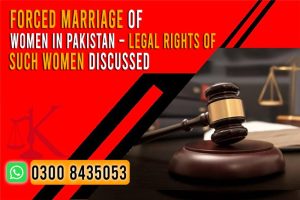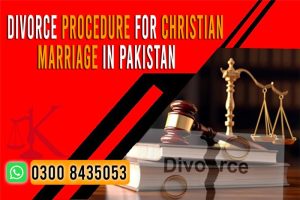In Pakistan, divorce is governed under various laws, including the Muslim Family Law Ordinance, 1961. Section 7 of this Act outlines the requirements for a legally recognized divorce process. According to Section 7, a husband who intends to divorce his wife must notify the Union Council of the relevant area within 30 days of the divorce, following a prescribed manner. This notification serves an important function: it formally records the divorce for future reference and establishes its legality.
Section 7(1) of the the Muslim Family Law Ordinance, 1961 is reproduced verbatim:
7. Talaq.– (1) Any man who wishes to divorce his wife shall, as soon as may be after the pronouncement of talaq in any form whatsoever, give the Chairman notice in writing of his having done so, and shall supply a copy thereof to the wife.
The issue with Oral Divorce arises when the husband attempts to divorce his wife verbally without any formal documentation or notification. Such a divorce is challenging to prove, as there is no concrete record or evidence unless the wife acknowledges it, which is rare. When a dispute arises, the husband is often left with the burden of proving the divorce in court, which becomes complex and often unreliable due to contradictory witness testimonies and lack of documentary evidence.
Disadvantages of Oral Divorce
Oral divorce, though technically permissible, leads to several serious disadvantages for the husband, which can create legal complications. Here are five major drawbacks of choosing this approach:
1. Lack of Recognition Before Government Authorities
Without formal notification to the Union Council, an oral divorce cannot be legally recognized by any government office, embassy, or authority. This lack of documentation can create substantial issues for the husband, particularly if he wishes to remarry, travel, or address legal matters that involve his marital status.
2. Liability for Past Maintenance Claims
The wife can legally demand maintenance for up to six years in arrears, as long as there is no official record of the divorce. Without proof of divorce, the husband remains liable to fulfil these maintenance obligations, often leading to unexpected financial burdens.
3. Inheritance Rights
If the husband passes away without having legally documented the divorce, the wife is still considered his legal spouse and is therefore entitled to claim her share of inheritance from his estate. This can lead to unintended complications in asset distribution and affect the rights of other heirs.
4. Restriction on Second Marriage
Under Pakistani law, a husband cannot enter into a second marriage without permission from the Union Council, which usually requires the consent of the first wife. If the marriage has not been formally dissolved, any attempt at remarriage could be deemed illegal. This can lead to criminal proceedings against the husband for polygamy without legal sanction.
5. Legal Penalties for Failing to Register the Divorce
According to Section 7 of the Family Courts Act, 1964, failing to register a divorce is considered an offence. The husband is legally required to notify the Union Council of his intention to divorce within 30 days; failure to comply is a violation of the law and may result in penalties. This requirement underscores the importance of a formal, documented divorce process for the protection of both parties.
For reference, Section 7(2) of the Muslim Family Law Ordinance, 1961, is reproduced herein below:
7. Talaq.– (1) …
(2) Whoever contravenes the provisions of sub-section (1) shall be punishable with simple imprisonment for a term which may extend to one year, or with fine which may extend to five thousand rupees, or with both.
Conclusion
While an oral divorce may seem simple and immediate, it carries significant disadvantages and potential legal risks. By failing to follow the formal notification process outlined in Section 7 of the Family Courts Act, 1964, husbands expose themselves to financial liabilities, legal complications, and even criminal penalties. Properly documenting and notifying the divorce not only protects the rights of both spouses but also ensures clarity and legal security for future circumstances.






